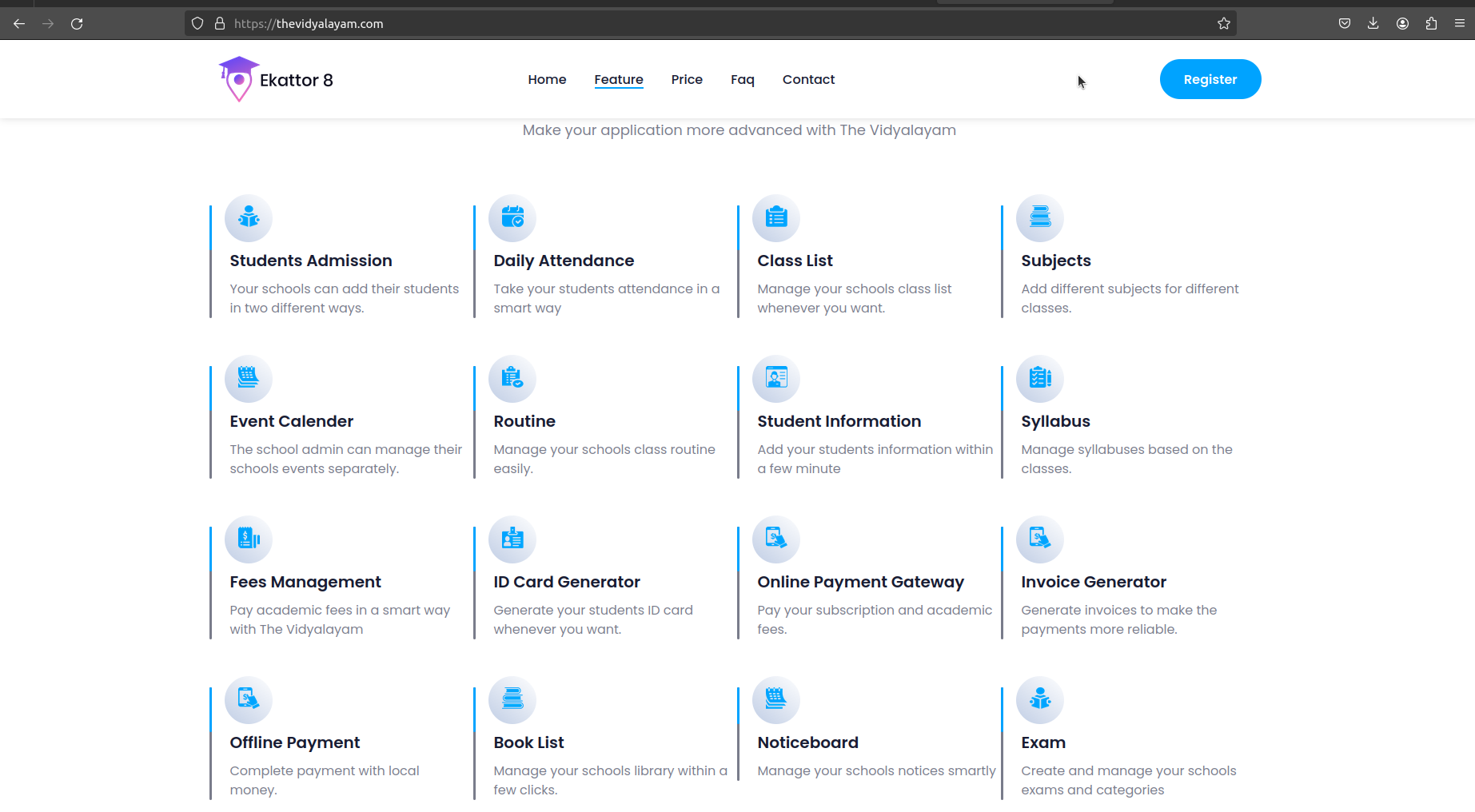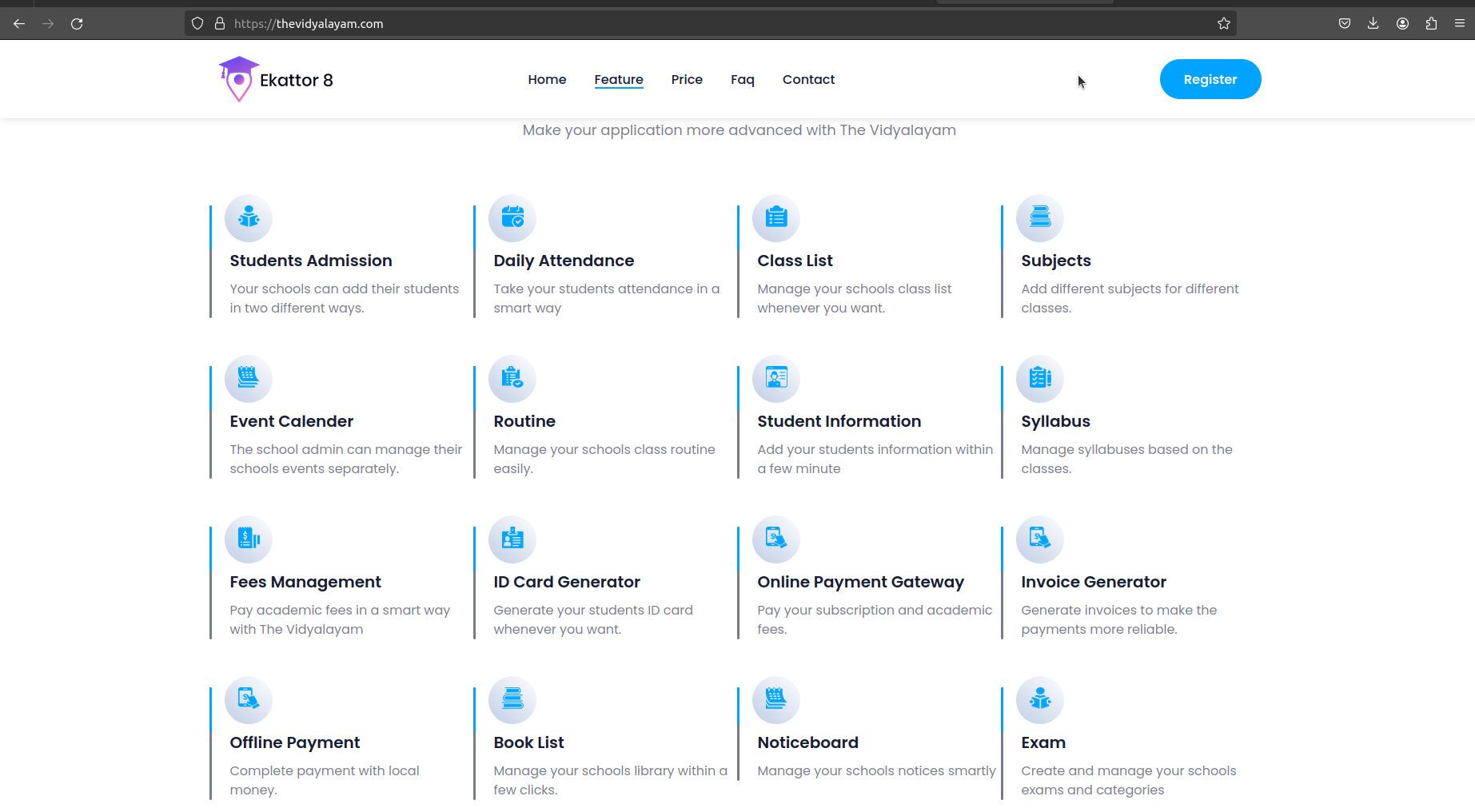All Blogs

The Evolution of Education in India: Embracing the Future
India's education system has undergone a significant transformation in recent years, adapting to the rapid advancements in technology and evolving societal needs. As we step into an era marked by innovation and digitalization, it is crucial to explore the latest trends and developments shaping the future of education in India. 1. Integration of Technology in Education The integration of technology has revolutionized the traditional education model, making learning more interactive, accessible, and engaging. Here are some key technological advancements that are reshaping education in India: E-Learning Platforms: The rise of e-learning platforms has made quality education accessible to students across the country. These platforms offer a wide range of courses, from academic subjects to skill-based learning, enabling students to learn at their own pace. Artificial Intelligence (AI): AI-powered tools are being used to personalize learning experiences, providing tailored content and assessments based on individual student needs. AI is also being utilized for administrative tasks, reducing the burden on educators. Virtual Reality (VR) and Augmented Reality (AR): VR and AR technologies are creating immersive learning experiences, allowing students to explore virtual environments and gain practical knowledge in subjects like science, history, and geography. Smart Classrooms: Smart classrooms equipped with interactive whiteboards, digital projectors, and internet connectivity are becoming increasingly common, enhancing the teaching and learning experience. 2. Focus on Skill Development The Indian education system is placing greater emphasis on skill development to prepare students for the demands of the modern workforce. The introduction of vocational courses and skill development programs is helping students acquire practical skills that are essential for various industries. Initiatives like the Skill India Mission aim to train millions of youth in different trades and professions, bridging the gap between education and employment. 3. Holistic Education Approach There is a growing recognition of the importance of holistic education, which focuses on the overall development of students. This approach emphasizes not only academic excellence but also the development of social, emotional, and physical skills. Schools are incorporating activities like yoga, meditation, sports, and arts into their curriculum to promote well-rounded development. 4. Inclusive Education Inclusive education is gaining prominence, ensuring that all students, regardless of their abilities or backgrounds, have equal access to education. Efforts are being made to create inclusive classrooms that accommodate students with disabilities, providing them with the necessary support and resources. The Right to Education (RTE) Act has been instrumental in promoting inclusive education by mandating free and compulsory education for children aged 6 to 14 years. 5. New Education Policy (NEP) 2020 The introduction of the New Education Policy (NEP) 2020 marks a significant milestone in the Indian education system. The NEP 2020 aims to transform the education landscape by focusing on the following key areas: Flexible Curriculum: The NEP advocates for a flexible curriculum that allows students to choose subjects based on their interests and aptitudes. It promotes multidisciplinary learning and reduces the emphasis on rote learning. Early Childhood Education: The policy emphasizes the importance of early childhood education and aims to provide universal access to quality early childhood care and education (ECCE). Teacher Training: The NEP highlights the need for continuous professional development of teachers, equipping them with the skills and knowledge to adapt to modern teaching methods. Higher Education Reforms: The policy proposes reforms in higher education, including the establishment of multidisciplinary institutions, revamping the curriculum, and promoting research and innovation. 6. Digital Literacy Digital literacy has become a crucial skill in today's digital age. The Indian education system is increasingly focusing on imparting digital literacy to students, ensuring they are proficient in using technology for learning and daily activities. Digital literacy programs and initiatives are being introduced in schools to equip students with essential digital skills. Conclusion The landscape of education in India is rapidly evolving, driven by technological advancements, policy reforms, and a shift towards holistic and inclusive learning. As we move forward, it is essential to continue embracing these changes and creating an education system that equips students with the knowledge, skills, and values needed to thrive in the 21st century. AdvisionsLAB is committed to contributing to this transformation by providing innovative learning solutions that cater to the diverse needs of students and educators.

The Evolution of Education in India: Embracing the Future
India's education system has undergone a significant transformation in recent years, adapting to the rapid advancements in technology and evolving societal needs. As we step into an era marked by innovation and digitalization, it is crucial to explore the latest trends and developments shaping the future of education in India. 1. Integration of Technology in Education The integration of technology has revolutionized the traditional education model, making learning more interactive, accessible, and engaging. Here are some key technological advancements that are reshaping education in India: E-Learning Platforms: The rise of e-learning platforms has made quality education accessible to students across the country. These platforms offer a wide range of courses, from academic subjects to skill-based learning, enabling students to learn at their own pace. Artificial Intelligence (AI): AI-powered tools are being used to personalize learning experiences, providing tailored content and assessments based on individual student needs. AI is also being utilized for administrative tasks, reducing the burden on educators. Virtual Reality (VR) and Augmented Reality (AR): VR and AR technologies are creating immersive learning experiences, allowing students to explore virtual environments and gain practical knowledge in subjects like science, history, and geography. Smart Classrooms: Smart classrooms equipped with interactive whiteboards, digital projectors, and internet connectivity are becoming increasingly common, enhancing the teaching and learning experience. 2. Focus on Skill Development The Indian education system is placing greater emphasis on skill development to prepare students for the demands of the modern workforce. The introduction of vocational courses and skill development programs is helping students acquire practical skills that are essential for various industries. Initiatives like the Skill India Mission aim to train millions of youth in different trades and professions, bridging the gap between education and employment. 3. Holistic Education Approach There is a growing recognition of the importance of holistic education, which focuses on the overall development of students. This approach emphasizes not only academic excellence but also the development of social, emotional, and physical skills. Schools are incorporating activities like yoga, meditation, sports, and arts into their curriculum to promote well-rounded development. 4. Inclusive Education Inclusive education is gaining prominence, ensuring that all students, regardless of their abilities or backgrounds, have equal access to education. Efforts are being made to create inclusive classrooms that accommodate students with disabilities, providing them with the necessary support and resources. The Right to Education (RTE) Act has been instrumental in promoting inclusive education by mandating free and compulsory education for children aged 6 to 14 years. 5. New Education Policy (NEP) 2020 The introduction of the New Education Policy (NEP) 2020 marks a significant milestone in the Indian education system. The NEP 2020 aims to transform the education landscape by focusing on the following key areas: Flexible Curriculum: The NEP advocates for a flexible curriculum that allows students to choose subjects based on their interests and aptitudes. It promotes multidisciplinary learning and reduces the emphasis on rote learning. Early Childhood Education: The policy emphasizes the importance of early childhood education and aims to provide universal access to quality early childhood care and education (ECCE). Teacher Training: The NEP highlights the need for continuous professional development of teachers, equipping them with the skills and knowledge to adapt to modern teaching methods. Higher Education Reforms: The policy proposes reforms in higher education, including the establishment of multidisciplinary institutions, revamping the curriculum, and promoting research and innovation. 6. Digital Literacy Digital literacy has become a crucial skill in today's digital age. The Indian education system is increasingly focusing on imparting digital literacy to students, ensuring they are proficient in using technology for learning and daily activities. Digital literacy programs and initiatives are being introduced in schools to equip students with essential digital skills. Conclusion The landscape of education in India is rapidly evolving, driven by technological advancements, policy reforms, and a shift towards holistic and inclusive learning. As we move forward, it is essential to continue embracing these changes and creating an education system that equips students with the knowledge, skills, and values needed to thrive in the 21st century. AdvisionsLAB is committed to contributing to this transformation by providing innovative learning solutions that cater to the diverse needs of students and educators.